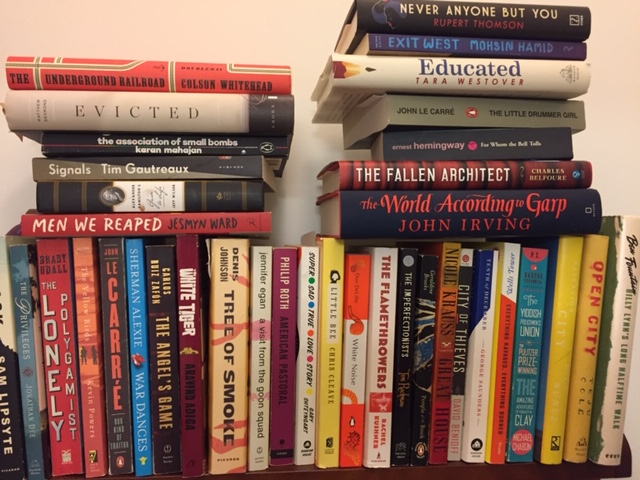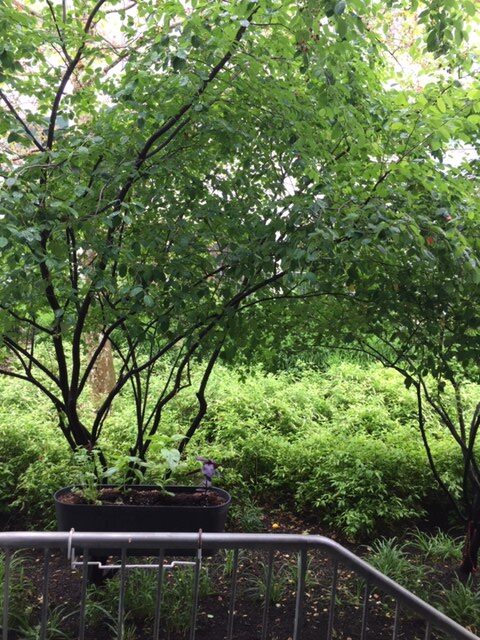Ever since I was a kid, I have looked forward to the summer as a time to catch up on reading books for fun. But in recent years, necessary reading for work and study have made it more difficult for me to make the time for a growing pile of books recommended to me by friends and family. This summer, I hope to reverse this trend and enjoy some fiction, both classic texts that I have never tried and some contemporary favorites on popular year-end Top 10 lists.

But reading does not have to be exclusively a professional obligation or a relaxing outlet. Reading can actually be a way to grow in spiritual knowledge, self-discovery, and action for justice, all of which are especially needed these days as we continue to confront the uncertainty of the pandemic.
In his book Discernment, the trusted spiritual writer and teacher Henri Nouwen describes the multiple ways that we can read the texts of the world, ourselves, and the Transcendent. According to Nouwen, the books that we need to read to grow in spiritual discernment include the books of nature, sacred texts, events, persons (both living and historical), and social injustices. By reading these “books” not for intellectual comprehension but for personal transformation, we can more easily allow ourselves to be moved by God within the signs of our daily lives. This type of spiritual reading requires that we read slowly and patiently, not as consumers of information but as people on a long journey of interior and communal growth.
In the case of spiritual reading, Nouwen defines this practice in contrast to the standard approach of digesting a text:
“Reading often means gathering information, acquiring new insight and knowledge, and mastering a new field. It can lead to degrees, diplomas, and certificates. Spiritual reading, however, is different. It means not simply reading about spiritual things but also reading about spiritual things in a spiritual way. That requires a willingness not just to read but to be read, not just to master but to be mastered by words.”
Acquiring this spiritual knowledge invites us to read more with our hearts than with our heads. It means allowing ourselves to read words slowly, becoming attentive to how the words on a page make us feel and potentially move us to make meaning of the world. This approach requires frequent pauses and suspension of the natural instinct to rush along, thinking about what might come next. It is ultimately a sacred process in which we listen for the movement of the Spirit within us as we go along.

So, this summer I invite you, as you are able, to read spiritually. You might select a favorite poem, a passage from a sacred text in your religious tradition, daily reflection offered by a spiritual writer, or even a news article or commentary about some of the social injustices that this pandemic has brought more clearly to the surface. Whatever you choose, I suggest the following simple steps:
- Read the entire passage at once. Take a pause.
- Slowly read each word of the passage until you reach the end. Take a pause.
- Slowly read each word or short phrase of the passage. Take a pause. And then allow yourself to sink deeper and deeper into the words. What are you hearing? What are you feeling as you savor the words? Are there any new insights about yourself, yourself in relationship to others, yourself in relationship to God? Are you feeling moved to act in some way?
- After you’ve spiritually read through the entire passage, take some time for silence to allow yourself to listen to whatever it is that you hear interiorly.
As a taste of this way of proceeding, I offer below one of my favorite poems, “As Kingfishers Catch Fire,” by the Jesuit poet Gerard Manley Hopkins:
As kingfishers catch fire, dragonflies draw flame;
As tumbled over rim in roundy wells
Stones ring; like each tucked string tells, each hung bell’s
Bow swung finds tongue to fling out broad its name;
Each mortal thing does one thing and the same:
Deals out that being indoors each one dwells;
Selves — goes itself; myself it speaks and spells,
Crying Whát I dó is me: for that I came.
I say móre: the just man justices;
Keeps grace: thát keeps all his goings graces;
Acts in God’s eye what in God’s eye he is —
Chríst — for Christ plays in ten thousand places,
Lovely in limbs, and lovely in eyes not his
To the Father through the features of men’s faces.
